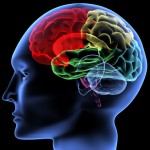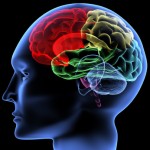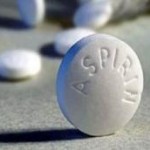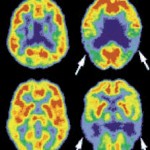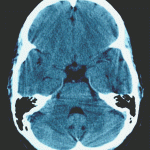Section: Brain & Nervous System
Brains: Betray Your Lies
Posted in Brain & Nervous System No discussion yet on May 5th, 2012
Lying is a very difficult, hard, tough task and lot more complex than telling the truth.
At the outset you have to accept the truth and then use all means to deny the truth and make sure it is consistent with all the given answers that you are about to give.
It has been scientifically proved and researched the fact that your brain is working harder can be seen in the called- electroencephalograph (EEG) which measures the electric signals and the activity in your brain. In our brain there is a part called anterior cingulate cortex which spots errors or conflicts as they are termed, and in case of deception, it spots the conflict between the truth and what you have just said.
What can be measured using EEG, known as P300, is the amount of attention you are giving to any one given task. When someone is lying as they are multitasking as the attention given to any one task drops and so does the strength of the P300 signal, which can be used as a lie detector.
It is this complexity that makes [...]
Treating Memory Loss with Herbal Remedies
Posted in Brain & Nervous System, Disease & Disorders No discussion yet on August 12th, 2011
The following herbs can help in treating memory loss:
Ginkgo biloba: This herb possesses the ability of improving blood circulation and also helps in augmenting oxygen flow towards our brain and other body parts. According to medical experts, ginkgo biloba is extremely beneficial for women experiencing forgetfulness during their perimenopausal or menopausal age. However, one should never consume this herb without consulting a physician; consuming incorrect doses of ginkgo biloba might cause side effects like dizziness, nausea, allergic reactions, headaches and diarrhea. People under the doses of anticoagulants should not consume ginkgo.
Ginseng: The herb ginseng is an excellent remedy for memory loss. It is often prescribed to women after they attain menopause. Ginseng not only cures forgetfulness of these women, but also increases their energy levels up to a great extent. According to expert herbalists, ginseng when consumed in combination with ginkgo can treat both short and long-term [...]
Types of attention deficit hyperactivity disorders
Posted in Brain & Nervous System, Disease & Disorders, Mental health No discussion yet on April 1st, 2011
The latest research and books all have agreed to the fact that there are types of Attention Deficit Hyperactivity Disorders (ADHD). Until now, we used to classify this disorder into three types: Inattentive, Impulsive or Hyperactive, or Combined. However, today the diagnosis of the attention deficit hyperactivity disorders has become broader that now considers five different types of ADHD as listed below.
Inattentive: Similar to Winnie the Pooh – distractible and disorganized
Classic Hyperactive: Tigger type – inattentive, bouncy, restless, hyperactive, and impulsive
Over-Focused: Rabbit type – Inflexible, trouble moving attention, and debating
With Anxiety: Piglet type – Worrying too much, nervousness, and difficult to shift attention
With Depression: Eeyore type – severe depression and inattentive
The above listed attention deficit hyperactivity disorders are as per the experiences and clinical observation; which tend to revolve around the Winnie the Pooh, the [...]
Brain Exercises for Buffed Mental Muscle
Posted in Brain & Nervous System, Disease & Disorders, Mental health No discussion yet on January 21st, 2011
With so much time dedicated towards buffing up external appearances, often the analogous efforts are lagging for chiselling mental muscle for which the expression ‘using it or losing it’ holds particularly true.
Alongside functions that could be performed everyday, the brain could even be trained by checking out ‘HAPPYneuron’ on line brain-teasers & adapted brain-fitness programme.
The mind consists of 5 key cognitive tasks, namely:
Attentiveness/concentration.
Verbal communication.
Recollection.
Optical-spatial proficiency.
Decision-making task.
Each one of these five regions must be regularly challenged, stimulated & effectually exercise for maintaining mental sharpness as one ages.
Here is a guide to some activities & brain exercises which could ably work on the key cognitive tasks of the brain – sparking up neural paths & links within.
Concentration
Concentration or attention is needed in almost all everyday activities. Superior concentration [...]
Multiple Personality Disorder
Posted in Brain & Nervous System, Disease & Disorders, Mental health No discussion yet on January 10th, 2011
Multiple personality disorder (presently termed dissociative identity disorder) is a rather rife consequence of acute traumas in early infancy, generally intense, repeated abuse (physically, sexually, &/or emotionally).
Experiencing mild-ranging dissociations like when one daydreams or goes astray when doing some task happens to a large majority of people. But, multiple personality disorder is an acute type of dissociation, a mental process producing a dearth of correlation in an individual’s thought process, recollections, emotions, deeds or sense of self. It is believed to arise from a traumatic experience that the individual underwent. The disconnect factor is believed to be a means to cope – the individual plainly disconnects himself/herself from a scenario or experiences which are rife with violence, trauma or pains for assimilating with his/her cognisant self.
Multiple personality disorder does exist and typified by the subsistence of duo or more diverse or split personalities [...]
Intravenous Aspirin as Potential Novel Migraine Therapy
Posted in Brain & Nervous System, Disease & Disorders, News No discussion yet on September 24th, 2010
Majority of the people suffering from headaches have individual ploys for respite – glugging down water, taking aspirin, exercising or possibly napping. However for over twenty-nine million people suffering from migraines, the anguish could be tricky in escaping.
Novel study indicates that intravenous intake of aspirin – a migraine therapy that has been largely employed in EU – might be an effectual migraine therapy in the United States.
Scientists accessed info of over 160 patients with hospitalization in U.K. for treating continual headache experienced on a daily basis and were offered standard of 5 dosages of aspirin intravenously. As per research finding appearing in the latest edition of the journal ‘American Academy of Neurology’ 2/3rds of the patients cited a lowering in pains post-therapy.
Aspirin intake in pill form is effectual in the treatment of severe migraine types. However according to Doctor Peter Goadsby co-authoring the research, administering an additionally [...]
Could Aspirin be the ideal Migraine Headache Treatment?
Posted in Brain & Nervous System, Disease & Disorders No discussion yet on April 22nd, 2010
Latest study result has shown that aspirin use could now put a halt to the miseries of migraines for scores of sufferers. Researchers have discovered that 3 pills of the pain-allaying medicine could help over half of those ailing from migraines tide through an incapacitating attack.
During an examination of thirteen studies that involved 4,222 entrants, nine hundred to one thousand milligrams of the painkiller medicine assisted in totally curing 1 in 4 migraine sufferers in about 2 hours.
Nearly half of the study entrants experienced their symptoms that ranged in the moderate to acute bracket reduced to mild over an analogous time span thus indicating aspirin to be a potential migraine headache treatment.
Researchers combined aspirin along with packets of anti-emetic medication metoclopramide which was observed to be a superlative means of dealing with nausea and exhibited analogous efficacy as another OTC migraine medication Imigran Recovery also known as sumatriptan.
However, a hundred [...]
New-fangled Study show PET Brain Scans Detect Alzheimer’s Disease Early on
Posted in Brain & Nervous System, Disease & Disorders, Mental health, News No discussion yet on March 19th, 2010
A team of Investigators from the NYU Langone Medical Center stated that their study findings indicate that individuals having a family history of Alzheimer’s disease mostly possess clump-like formations of toxic-natured protein accruement in their brains even despite being in normal health.
Study investigators stated that their findings could pave way to novel means of identifying individuals at risk of developing Alzheimer’s disease early on when some steps could be taken towards tackling it.
Researchers are hopeful that this study outcome could imminently be of great help in lucidly diagnosing Alzheimer’s disease prior to the condition turning symptomatic and when the brain is still in good health and therapies could have the most optimal outcomes.
The group of scientists are intent on continually following the entrants of this latest study for observing if they would be developing dementia and would like to duplicate the outcomes in a more large-scaled trial. Numerous research [...]
Tourette’s syndrome – Taming the Tics
Posted in Brain & Nervous System, Disease & Disorders, Mental health No discussion yet on February 24th, 2010
Tourette’s syndrome is a perplexing disorder causing peculiar tics, abrupt jerkiness and bizarre vocalizations.
Frequently, tics ailments and tic-associated obsessive compulsive disorder (OCD) happen collectively and mostly assuage or even subside in early adulthood. However, lamentably at times elevated dosages of SSRI antidepressants (for instance, Prozac) would be needed for deriving a favourable response. Furthermore, sometimes augmenting the SSRI with another medicine is required. The outcomes of a latest study showed that several of the obsessive compulsive disorder cases in remission continued their intake of an SSRI antidepressant medicine.
The ideal treatment in case of early inset, tic-associated O.C.D is generally a merger of medicines and cognitive-behavioural therapy (CBT), mostly a definite method known as exposure and response deterrence.
During a remedial session of exposure and response deterrence, the patient and the analyst start off with a reciprocally decided upon [...]



